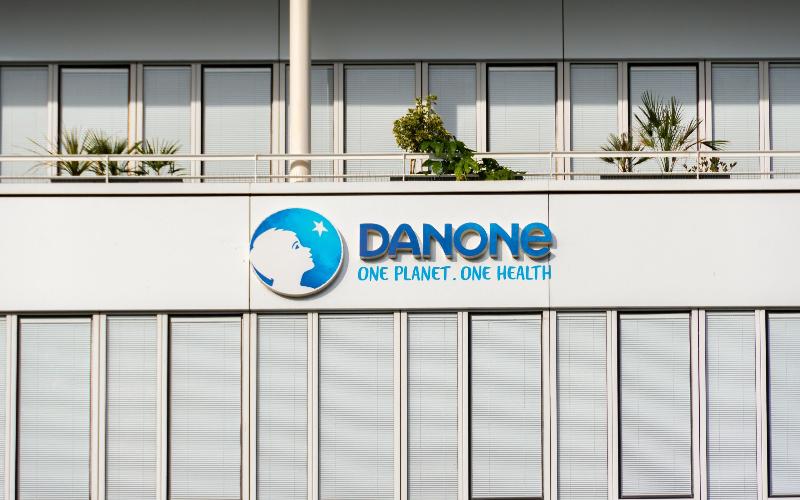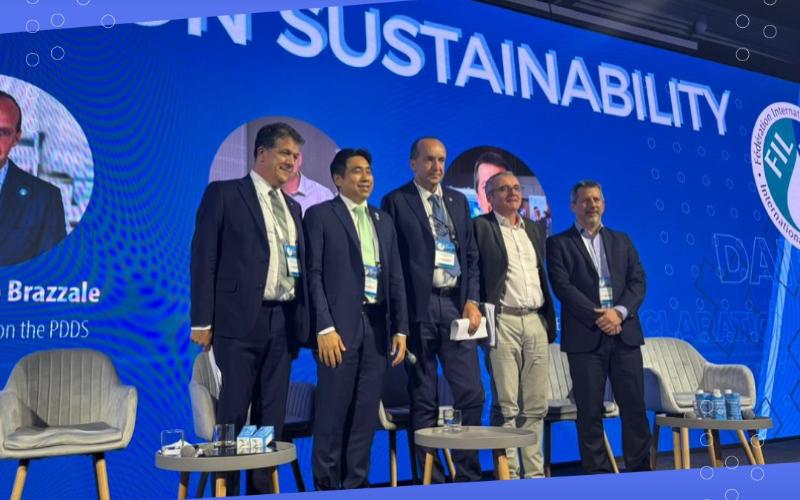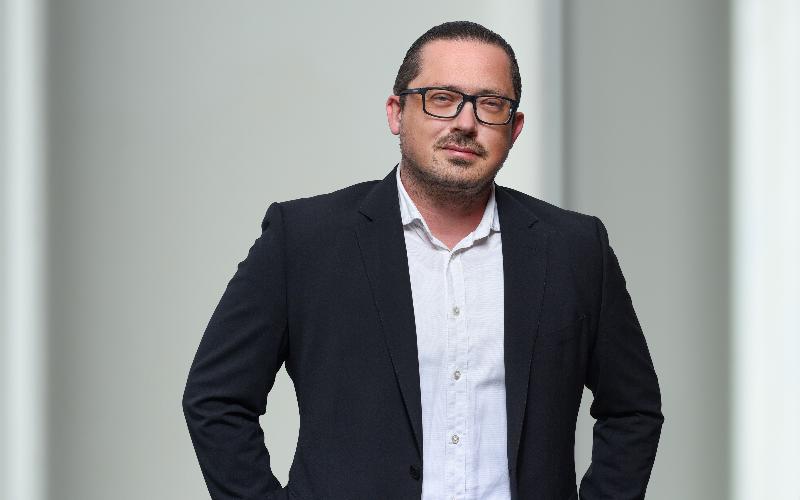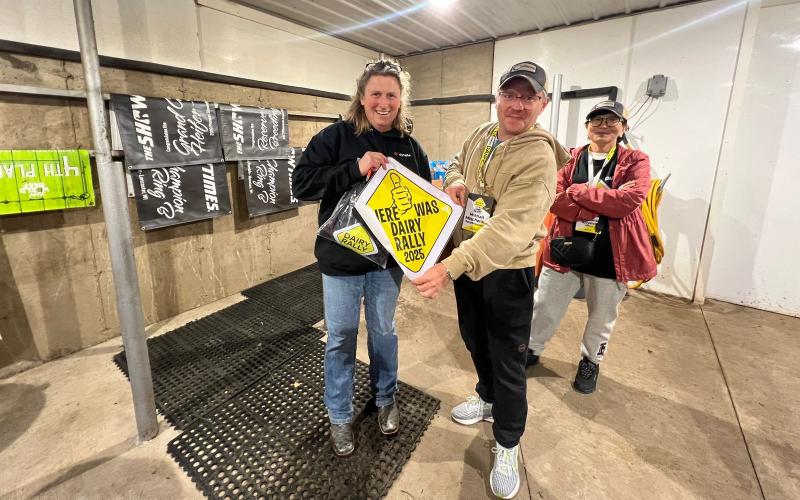Milky Rivers, Jelly Shores: How Kazakhstan is Trying to Succeed in a Troubled Industry
Source: https://www.paryz.kz/
Kazakhstan's dairy industry is facing turbulent times. Processing enterprises are reluctant to purchase milk, with procurement prices having already dropped to 150-160 tenge. Fresh milk is losing out to cheaper powdered alternatives, with its import from Russia to Kazakhstan increasing sixfold over the past five years. Meanwhile, President Kassym-Jomart Tokayev has tasked the development of agricultural product processing, aiming to increase its share to 70% of the raw materials produced.
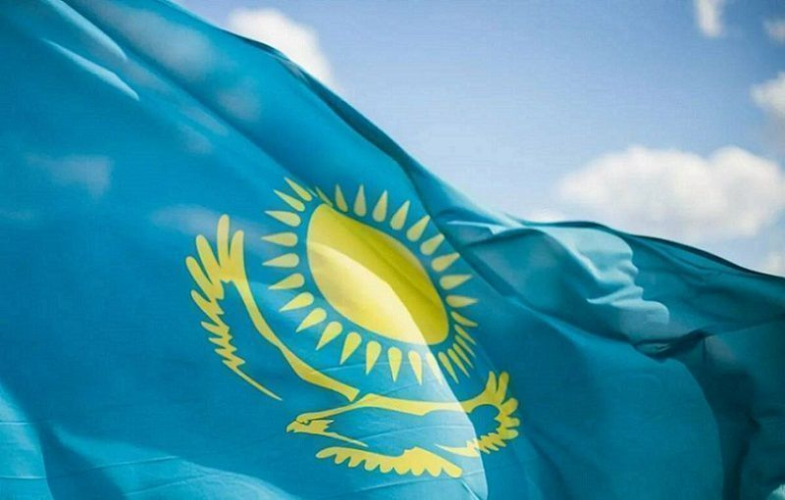
What's Happening?
The dairy industry is experiencing a crisis. The issues were highlighted by Aidarbek Khozhynazarov, a deputy and former head of agricultural companies. According to him, domestic producers no longer need milk from Kazakh farmers. For instance, factories in Pavlodar and East Kazakhstan regions have halted raw milk purchases. The increase in demand hasn't been helped even by the drop in procurement prices from 250 to 150-160 tenge. The deputy explained that the problem lies with the cheap powdered product.
"Buying powdered milk at 1,000 tenge per kilogram makes a liter of reconstituted milk cost 120 tenge. How can real, fresh, and healthy milk compete with powdered milk? Over the past five years, imports of powdered milk from Russia have increased sixfold! In just one month, a single company imported 190 tons of powdered milk, which can be turned into 1,500 tons of reconstituted milk. This approach has already bankrupted several enterprises and is feeding the neighboring state," Khozhynazarov complained during a meeting in the Majilis on June 24.
Expensive and Poor Quality?
Andrei Gritsenko, General Director of LLP "Eurasian Milk" in North Kazakhstan – the largest cheese production enterprise in Kazakhstan – shared his analysis of the dairy market.
"Global prices for milk of basic fat content are 185 tenge with VAT for 'extra' grade. Our prices are significantly higher. This cost allows producers from other countries, including Belarus, Russia, and Ukraine, to control our market," Gritsenko said.
"Eurasian Milk" is currently investing in a new cheese production plant with a milk processing capacity of 120,000 tons per year. The volumes are substantial. However, Gritsenko is concerned not only about the price but also about the quality of the milk.
"Milk processing is inseparable from farms. Compared to neighboring countries, we have relatively small farms, leading to several large problems. These include low farm efficiency, high milk production costs, poor milk quality, often due to poor hygiene, milking, and milk storage practices, contamination with technologically harmful or atypical microorganisms, and low protein content," he explained.
Nurgalim Kenjebek, an expert at the Center for Industry Analysis of JSC "Institute of Economic Research," agrees with Gritsenko.
"In Kazakhstan, there is a shortage of domestic milk as raw material, as 62.3% of all milk in the country is produced by personal subsidiary farms (PSFs). Milk produced by PSFs often does not meet the requirements of dairy producers due to low quality and unstable volumes, especially in winter," Kenjebek noted, citing Bureau of Statistics data for January-May 2024: the number of dairy cows on agricultural enterprises was 129,054, while in peasant or farm households it was 835,593.
Saving the Ordinary Farmer
The need to rescue the dairy industry was already pointed out by deputy Nurzhan Ashimbetov in May. He directed his parliamentary inquiry to Prime Minister Olzhas Bektenov.
Ashimbetov reminded that Kazakhstan is investing heavily in the dairy industry. This includes an investment project for building a hundred farms – 100 billion tenge has been allocated from the national budget, and there are livestock projects under the "Aul Amanaty" program – another 100 billion tenge.
However, according to the deputy, participants in these projects complain that there is no demand for milk. Ashimbetov provided two examples: in Pavlodar region, processing enterprises refuse to accept products from a farm, forcing it to stop importing cattle from Europe, while in North Kazakhstan, owners of small farms are even pouring milk out on the streets.
"There is a significant influx of imported products in retail chains, especially from our EAEU partners – Russia and Belarus, whose products have been banned from the European market due to sanctions. To capture the Kazakhstani market, enterprises from neighboring countries easily engage in dumping practices. As a result, domestic companies are left without resources, and the dairy industry suffers losses," said Ashimbetov.
What Should Be Done? Opinion of Deputy Khozhynazarov
According to the deputy, internal market protection needs to be strengthened.
"Today, the Ministry of Trade's potential in technical regulation is not fully utilized. Last year alone, Rosselkhoznadzor introduced 22 restrictions on 15 Kazakhstani producers. Our ministry imposed restrictions on only 8 Russian enterprises. The score is 22:8. You can imagine the pain!" Khozhynazarov sardonically remarked.
He also believes that officials should develop comprehensive measures to support the export of Kazakhstani agricultural products, following Russia's example. Russia has been compensating up to 50% of transportation costs since last year and plans to increase this reimbursement to 100%; the VAT refund period has been reduced from 180 to 90 days.
"And what’s happening with us? Only for unpaid VAT, i.e., frozen funds, there are 600 billion tenge in business turnover," the deputy noted.
What Else Should Be Done? Opinion of Businessman Gritsenko
Andrei Gritsenko, General Director of LLP "Eurasian Milk," believes that the cost of credit should be competitive.
"Current rates are too high. Interest rate subsidies are positioned as state assistance, but this is not the case. The rate for priority sectors should be immediately competitive with importing countries, so there is no need for subsidies. For example, in Russia, the current rate is only 2%," said Gritsenko.
He also mentioned the need to more actively use investment subsidies. Funding should be consistent and carried out over 7-10 years.
"Delays in payments are unacceptable because short-term planning is not feasible, and it does not attract serious investments in the industry, nor does it help develop and bring a competitive brand to the market, or secure Kazakhstani products in the market. The government will gain more economic benefit from an established production than it saves on subsidies during construction. For example, in our company – under very difficult conditions, we invested $40 million in building a new plant, and in terms of subsidies, we received just over $1 million. We can operate like this, but we could have developed twice as fast with investment subsidies," Gritsenko emphasized.
“Current financing conditions do not allow us to produce products such as hard cheeses. The technological requirements for cheese production involve aging for over 6 months, which means freezing working capital for half a year. This applies to any production, any processing. Without long-term soft loans, it is impossible to move towards processing. During this time, interest on loans, taxes, and wages accumulate, and then we wonder why we have imported products. Farmers want to produce but cannot afford to do so while freezing funds. The government must provide clear proposals for supporting processing,” insists Deputy Aydarbek Khozhynazarov.
What Is the Ministry of Agriculture Saying?
As usual, officials present statistics, and these statistics are steadily growing: "In physical terms, production has increased: processed milk by 2.9% (from 582,000 tons to 598,700 tons), butter by 18.6% (from 26,300 tons to 31,100 tons), cheese and cottage cheese by 10.5% (from 39,700 tons to 43,800 tons)."
These figures were presented by the Minister of Agriculture Aydarbek Saparov during a parliamentary session on June 24. However, he did not deny the problems in the sector. One of them is the insufficiency and high cost of raw materials. The department plans to tackle this issue by eliminating chronic data discrepancies!
"Although statistics indicate sufficient raw materials in livestock, we understand that the data do not reflect the real situation. For example, official statistics show about 6.5 million tons of milk produced annually, but only 2.1 million tons are processed by 180 enterprises. It is a paradox: how can there be a shortage of raw materials for processing with such a volume of milk? This fact is explained by the long-standing practice of distorting statistical data in both livestock and crop production," said the minister.
According to him, a special working group has been created to update the statistical data.
"As a result of the work carried out, the commission will remove 2 million heads of cattle and 3 million tons of milk from the records. Relevant data will improve planning quality and decision-making on regulating the domestic market," assured the head of the Ministry of Agriculture. Regarding the high share of imports, it pertains to powdered milk, cream, butter, cheese, and cottage cheese.
"Besides the overwhelming cheap imports, we see our own high cost of finished products. For example, the cost of Kazakh butter is about 3,100 tenge per kg, while the average import price, according to statistics, is 1,800-2,300 tenge per kg. Of course, there are issues with technical regulations and consumer awareness of product composition and quality, but such competition negatively affects domestic production. To address the issue of low-quality products, support from responsible government agencies is needed. There is also a need for more educational work with the population about the differences between spreads and butter, cheese and cheese products, and other items," the minister believes.
Who Is to Blame and Is There Light at the End of the Tunnel?
Nurgalim Kenzhebek, an expert at the Industry Analysis Center of the Institute of Economic Research, provides the numbers: as of January 1, 2021, the volume of imported dairy products from Russia was 3,660.9 tons, and by January 1, 2024, this volume had increased to 4,756.8 tons. During this period, the volume of imports increased by 29.9%.
"Due to the economic situation in neighboring Russia, cheap imported goods and raw materials have entered the domestic market, leading to a decrease in prices for domestic products. This has, of course, caused serious difficulties for many farmers in the domestic market. The Kazakhstani government, particularly the ministries of agriculture, trade, and integration, is responsible for this situation. In light of the circumstances, programs to support the domestic market and corresponding measures should have been developed," says Kenzhebek.
He believes that measures to support the domestic market could be the solution.
"Minister of Agriculture Aydarbek Saparov, at a parliamentary session, outlined the planned sequence of measures on this issue. If dairy producers use imported raw materials, they will be excluded from subsidies. From an expert point of view, this decision is the most reasonable at the moment. Since the state provides extensive support to producers, there is a choice between imported raw materials and state support. Given the current state of the market, producers are likely to choose state support, which will help reduce demand for imported raw materials," the expert believes.
The dairy industry is experiencing a crisis. The issues were highlighted by Aidarbek Khozhynazarov, a deputy and former head of agricultural companies. According to him, domestic producers no longer need milk from Kazakh farmers. For instance, factories in Pavlodar and East Kazakhstan regions have halted raw milk purchases. The increase in demand hasn't been helped even by the drop in procurement prices from 250 to 150-160 tenge. The deputy explained that the problem lies with the cheap powdered product.
"Buying powdered milk at 1,000 tenge per kilogram makes a liter of reconstituted milk cost 120 tenge. How can real, fresh, and healthy milk compete with powdered milk? Over the past five years, imports of powdered milk from Russia have increased sixfold! In just one month, a single company imported 190 tons of powdered milk, which can be turned into 1,500 tons of reconstituted milk. This approach has already bankrupted several enterprises and is feeding the neighboring state," Khozhynazarov complained during a meeting in the Majilis on June 24.
Expensive and Poor Quality?
Andrei Gritsenko, General Director of LLP "Eurasian Milk" in North Kazakhstan – the largest cheese production enterprise in Kazakhstan – shared his analysis of the dairy market.
"Global prices for milk of basic fat content are 185 tenge with VAT for 'extra' grade. Our prices are significantly higher. This cost allows producers from other countries, including Belarus, Russia, and Ukraine, to control our market," Gritsenko said.
"Eurasian Milk" is currently investing in a new cheese production plant with a milk processing capacity of 120,000 tons per year. The volumes are substantial. However, Gritsenko is concerned not only about the price but also about the quality of the milk.
"Milk processing is inseparable from farms. Compared to neighboring countries, we have relatively small farms, leading to several large problems. These include low farm efficiency, high milk production costs, poor milk quality, often due to poor hygiene, milking, and milk storage practices, contamination with technologically harmful or atypical microorganisms, and low protein content," he explained.
Nurgalim Kenjebek, an expert at the Center for Industry Analysis of JSC "Institute of Economic Research," agrees with Gritsenko.
"In Kazakhstan, there is a shortage of domestic milk as raw material, as 62.3% of all milk in the country is produced by personal subsidiary farms (PSFs). Milk produced by PSFs often does not meet the requirements of dairy producers due to low quality and unstable volumes, especially in winter," Kenjebek noted, citing Bureau of Statistics data for January-May 2024: the number of dairy cows on agricultural enterprises was 129,054, while in peasant or farm households it was 835,593.
Saving the Ordinary Farmer
The need to rescue the dairy industry was already pointed out by deputy Nurzhan Ashimbetov in May. He directed his parliamentary inquiry to Prime Minister Olzhas Bektenov.
Ashimbetov reminded that Kazakhstan is investing heavily in the dairy industry. This includes an investment project for building a hundred farms – 100 billion tenge has been allocated from the national budget, and there are livestock projects under the "Aul Amanaty" program – another 100 billion tenge.
However, according to the deputy, participants in these projects complain that there is no demand for milk. Ashimbetov provided two examples: in Pavlodar region, processing enterprises refuse to accept products from a farm, forcing it to stop importing cattle from Europe, while in North Kazakhstan, owners of small farms are even pouring milk out on the streets.
"There is a significant influx of imported products in retail chains, especially from our EAEU partners – Russia and Belarus, whose products have been banned from the European market due to sanctions. To capture the Kazakhstani market, enterprises from neighboring countries easily engage in dumping practices. As a result, domestic companies are left without resources, and the dairy industry suffers losses," said Ashimbetov.
What Should Be Done? Opinion of Deputy Khozhynazarov
According to the deputy, internal market protection needs to be strengthened.
"Today, the Ministry of Trade's potential in technical regulation is not fully utilized. Last year alone, Rosselkhoznadzor introduced 22 restrictions on 15 Kazakhstani producers. Our ministry imposed restrictions on only 8 Russian enterprises. The score is 22:8. You can imagine the pain!" Khozhynazarov sardonically remarked.
He also believes that officials should develop comprehensive measures to support the export of Kazakhstani agricultural products, following Russia's example. Russia has been compensating up to 50% of transportation costs since last year and plans to increase this reimbursement to 100%; the VAT refund period has been reduced from 180 to 90 days.
"And what’s happening with us? Only for unpaid VAT, i.e., frozen funds, there are 600 billion tenge in business turnover," the deputy noted.
What Else Should Be Done? Opinion of Businessman Gritsenko
Andrei Gritsenko, General Director of LLP "Eurasian Milk," believes that the cost of credit should be competitive.
"Current rates are too high. Interest rate subsidies are positioned as state assistance, but this is not the case. The rate for priority sectors should be immediately competitive with importing countries, so there is no need for subsidies. For example, in Russia, the current rate is only 2%," said Gritsenko.
He also mentioned the need to more actively use investment subsidies. Funding should be consistent and carried out over 7-10 years.
"Delays in payments are unacceptable because short-term planning is not feasible, and it does not attract serious investments in the industry, nor does it help develop and bring a competitive brand to the market, or secure Kazakhstani products in the market. The government will gain more economic benefit from an established production than it saves on subsidies during construction. For example, in our company – under very difficult conditions, we invested $40 million in building a new plant, and in terms of subsidies, we received just over $1 million. We can operate like this, but we could have developed twice as fast with investment subsidies," Gritsenko emphasized.
“Current financing conditions do not allow us to produce products such as hard cheeses. The technological requirements for cheese production involve aging for over 6 months, which means freezing working capital for half a year. This applies to any production, any processing. Without long-term soft loans, it is impossible to move towards processing. During this time, interest on loans, taxes, and wages accumulate, and then we wonder why we have imported products. Farmers want to produce but cannot afford to do so while freezing funds. The government must provide clear proposals for supporting processing,” insists Deputy Aydarbek Khozhynazarov.
What Is the Ministry of Agriculture Saying?
As usual, officials present statistics, and these statistics are steadily growing: "In physical terms, production has increased: processed milk by 2.9% (from 582,000 tons to 598,700 tons), butter by 18.6% (from 26,300 tons to 31,100 tons), cheese and cottage cheese by 10.5% (from 39,700 tons to 43,800 tons)."
These figures were presented by the Minister of Agriculture Aydarbek Saparov during a parliamentary session on June 24. However, he did not deny the problems in the sector. One of them is the insufficiency and high cost of raw materials. The department plans to tackle this issue by eliminating chronic data discrepancies!
"Although statistics indicate sufficient raw materials in livestock, we understand that the data do not reflect the real situation. For example, official statistics show about 6.5 million tons of milk produced annually, but only 2.1 million tons are processed by 180 enterprises. It is a paradox: how can there be a shortage of raw materials for processing with such a volume of milk? This fact is explained by the long-standing practice of distorting statistical data in both livestock and crop production," said the minister.
According to him, a special working group has been created to update the statistical data.
"As a result of the work carried out, the commission will remove 2 million heads of cattle and 3 million tons of milk from the records. Relevant data will improve planning quality and decision-making on regulating the domestic market," assured the head of the Ministry of Agriculture. Regarding the high share of imports, it pertains to powdered milk, cream, butter, cheese, and cottage cheese.
"Besides the overwhelming cheap imports, we see our own high cost of finished products. For example, the cost of Kazakh butter is about 3,100 tenge per kg, while the average import price, according to statistics, is 1,800-2,300 tenge per kg. Of course, there are issues with technical regulations and consumer awareness of product composition and quality, but such competition negatively affects domestic production. To address the issue of low-quality products, support from responsible government agencies is needed. There is also a need for more educational work with the population about the differences between spreads and butter, cheese and cheese products, and other items," the minister believes.
Who Is to Blame and Is There Light at the End of the Tunnel?
Nurgalim Kenzhebek, an expert at the Industry Analysis Center of the Institute of Economic Research, provides the numbers: as of January 1, 2021, the volume of imported dairy products from Russia was 3,660.9 tons, and by January 1, 2024, this volume had increased to 4,756.8 tons. During this period, the volume of imports increased by 29.9%.
"Due to the economic situation in neighboring Russia, cheap imported goods and raw materials have entered the domestic market, leading to a decrease in prices for domestic products. This has, of course, caused serious difficulties for many farmers in the domestic market. The Kazakhstani government, particularly the ministries of agriculture, trade, and integration, is responsible for this situation. In light of the circumstances, programs to support the domestic market and corresponding measures should have been developed," says Kenzhebek.
He believes that measures to support the domestic market could be the solution.
"Minister of Agriculture Aydarbek Saparov, at a parliamentary session, outlined the planned sequence of measures on this issue. If dairy producers use imported raw materials, they will be excluded from subsidies. From an expert point of view, this decision is the most reasonable at the moment. Since the state provides extensive support to producers, there is a choice between imported raw materials and state support. Given the current state of the market, producers are likely to choose state support, which will help reduce demand for imported raw materials," the expert believes.
Key News of the Week


